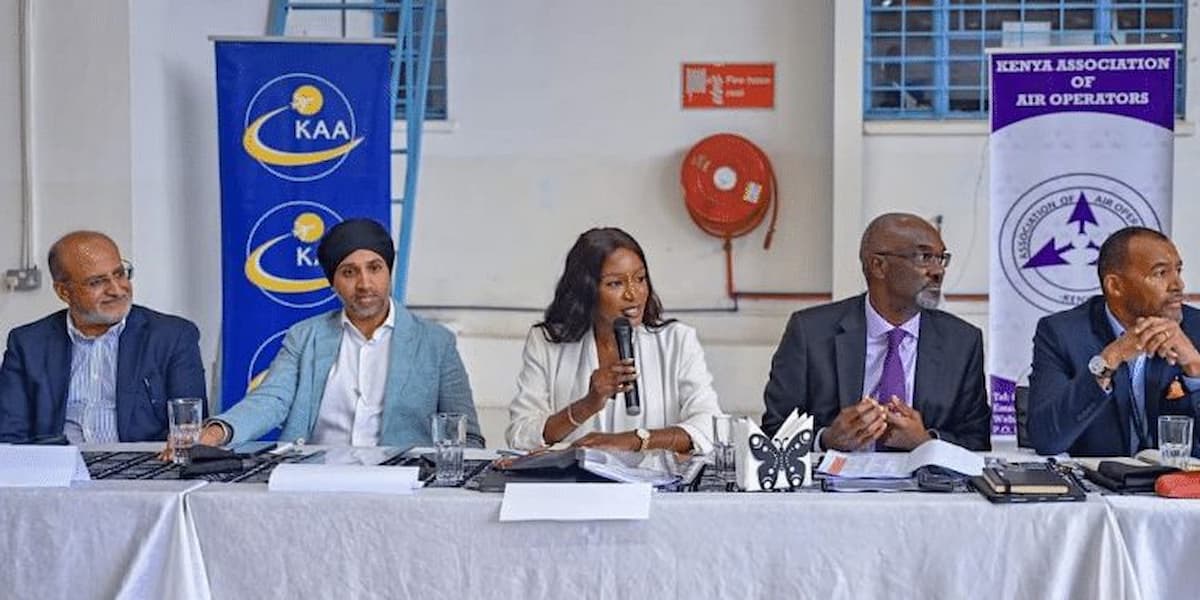The Board of the Kenya Association of Air Operators (KAAO) has officially called for a comprehensive review of the Privately Initiated Proposal (PIP) Concession process for Jomo Kenyatta International Airport (JKIA). This decision follows an extensive internal review process, driven by the views and concerns of its members, and was made public following the Board’s meeting on October 4, 2024.
Concerns Raised Over JKIA Concession Process
The KAAO Board expressed its strong reservations regarding the current approach to the JKIA concession, specifically objecting to the one-bidder process proposed for the management and operation of one of Kenya’s most strategic assets. The association argued that this approach jeopardizes the transparency and competitive nature expected from a Public-Private Partnership (PPP) of such magnitude.
In a statement, KAAO noted that its members unanimously agreed that JKIA’s concession, as presently conceived, was not in the best interest of the country. Concerns were raised over the credibility of the potential private partner involved, urging for a competitive and transparent bidding process. The Association emphasized the importance of following the steps outlined in Kenya’s PPP Act to ensure fairness and maximize the benefits for all stakeholders involved.
Advocating for a Competitive and Transparent Process
The KAAO Board firmly believes that a one-bidder process for a critical infrastructure asset like JKIA does not align with Kenya’s long-term interests. They recommended that the bidding process for the concession be opened up to multiple parties, ensuring that it is competitive and transparent. By adhering to the principles outlined in the National Aviation Policy and following a master plan for JKIA’s development, the concession could lead to meaningful upgrades to Kenya’s primary aviation hub.
The Association also stressed the need for a clear vision of JKIA’s future, driven by comprehensive stakeholder involvement. This includes a thorough feasibility study, a requirement that KAAO insists should be undertaken before proceeding with any concession. The members highlighted that such a study would offer critical insights into the needs of operators, users, and the public, ensuring that the eventual concession plan provides the best value for Kenya.
Reiterating the Need for Stakeholder Involvement and Infrastructure Development
A central demand from KAAO’s members is the prioritization of stakeholder engagement in the concession process. The association is calling for a collaborative effort that involves all parties from the outset to create a shared vision for JKIA’s future. KAAO emphasized that critical infrastructure projects, such as the development of a second runway and terminal expansions, must be included in any concession plans to ensure that JKIA can maintain its position as a leading aviation hub in the region.
In recent years, JKIA has faced increasing competition from other regional airports, and KAAO believes that its full potential can only be realized with a carefully planned development strategy. The proposed concession process, if executed correctly, could pave the way for these much-needed infrastructure upgrades, boosting JKIA’s capacity and efficiency in handling growing passenger and cargo traffic.
A Call for a Return to the Drawing Board
The KAAO Board ultimately recommended a return to the drawing board for the JKIA concession process, with a renewed focus on collaboration, transparency, and competitive practices. They emphasized that the end goal should be the development of JKIA as a dynamic, world-class aviation hub, serving not only Kenya but the entire region.
The Association’s stance reflects the deep-seated concerns among Kenyan air operators about the future of JKIA. With its strategic importance to the country’s aviation sector, any plans for its concession must be carefully scrutinized to ensure that Kenya’s long-term goals and the interests of all stakeholders are fully considered.
Source: Air Space Africa






